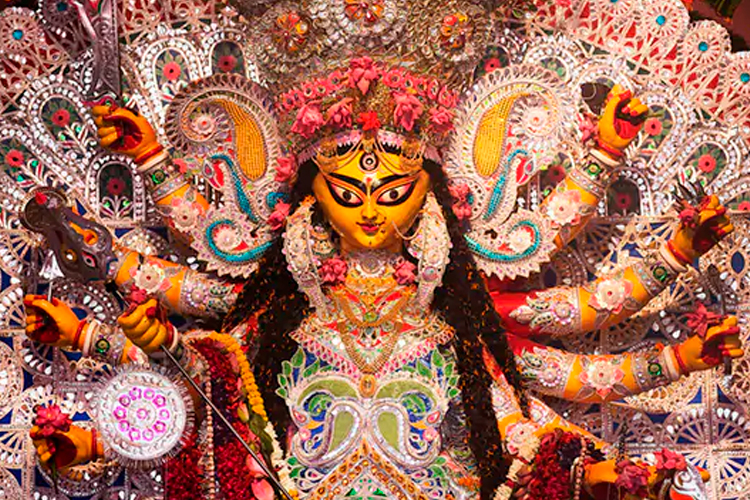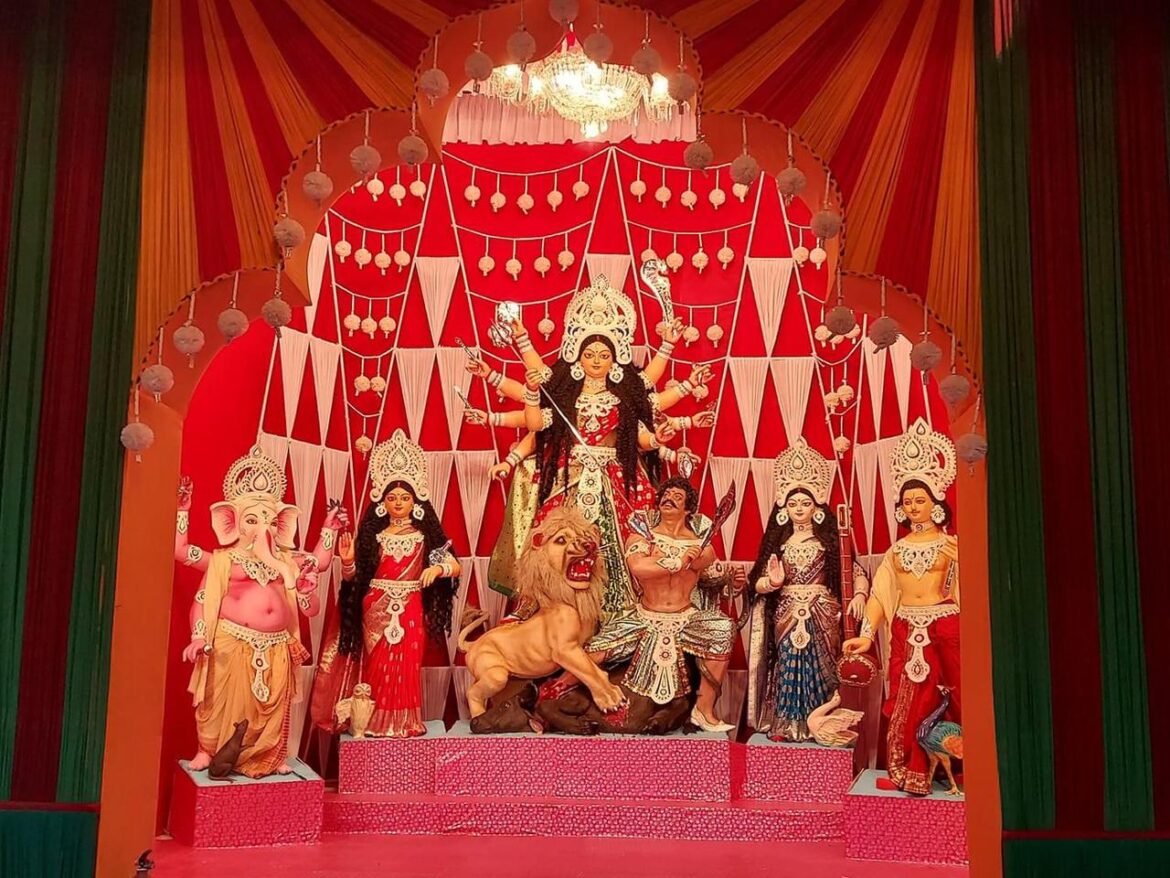By Lauren Prem
“The first revolution is when you change your mind” – Gil Scott-Heron
Festivals and traditions bring people together, be it for sharing joy or age-old miseries! The yearly routine of sculpting Durga goddess’s idol for Dussehra, has taken a revolutionary turn this year as sex workers in Sonagachi refuse to give brothel soil for sculpting the Durga goddess, as a form of protest demanding safety and justice for women in the society. The Hindu tradition involves fulfillment of certain sacred requirements when it comes to collecting soil for sculpting the Durga idol. One of the requirements, that has turned extremely controversial, is the use of brothel soil for sculpting.
People from different sections of the society joined the RG Kar Protest, including sex workers from Sonagachi. They gave a radical touch to this protest by stating that they would not give soil for Durga till justice is served. The tradition of soil collection also entails that no one must demand soil from sex workers. Rather, it must be requested. Therefore, the eve of Durga depicts an ironic, sad situation where sex workers, who are otherwise excluded from the society, are requested for soil.
The particular demand of Sonagachi sex workers is not merely justice to the victim of the RG Kar rape and murder case. More so, this case is being used by the sex workers to highlight the pathetic situation of women across the country in general and sex workers in particular. By ‘till justice is served’, they mean to emphasize the cruelty inflicted upon women in our country. While putting forth their demands, they precisely stress upon the fact that sex workers’ families and children do not have the sense of security that other families generally do.
The RG Kar rape and murder case is not the main reason for the refusal of brothel soil. A sex worker clarified that the important reason for this refusal is due to the lack of acceptance regarding the profession of sex work itself. Further, they also underscore the safety of women to be at stake in every place, not just brothels and how reporting of such cases are very less compared to the actual incidents that take place.
Numerous beliefs are attached to the use of brothel soil for Dussehra. According to Vedic studies, nine women are worshipped for Durga Puja. A nati (dancer/actress), a vaishya (prostitute), rajaki (laundry girl), a brahmani (Brahmin girl), a shudra, a gopala (milkmaid) form these nine categories, also known as ‘Navakańyās.’ The use of brothel soil is considered to be a form of worship or respect to one of these nine categories of women – the Vaishyas.
This Vedic interpretation that bases the tradition on worship and respect flies in the face of reality. Symbolic traditions of reverence hold no value when someone’s reality is filled with struggles. The NHRC survey on rehabilitation, poverty eradication and employment generation revealed the true condition of sex workers in the districts of Kolkata. The report suggested, an obvious fact that majority of the sex workers lived in poverty. The shocking fact is that around 80% of the workers professed sex work unwillingly.
Another prominent belief underlying this tradition is the brothel soil being a place where people shed their virtuous attributes and enter the world of carnal desire and sin. This is a long-ingrained stereotype that has totally led to ostracization of sex workers. The stereotype is premised on the belief that sex work itself is an undignified job and therefore, they do not deserve to lead a life with dignity.
The plight of sex workers, recorded in the NHRC survey mentioned above, reveals an absence of dignity that all of us, common people, assert to be a matter of basic right. The constitution that upholds right to dignity under article 21 – right to life, has practically failed. The provision which begins with the term ‘no person’ implies a sense of dignity for all, and not to a few persons. Yet, discrimination based on stereotypes are the reality of life, a curse that law has failed to cure.
Festivals generally symbolise happiness, love and unity among people. On the flip side, they reflect a dark reality – one where people are celebrated without being accorded the most basic human rights. As Gil Scott-Heron states, “The first revolution is when you change your mind.” Sex workers have changed their mind about hypocritic traditional symbols that portray love and reverence only during the time of festivals and not otherwise. The society must not have the benefit of portraying itself as unified and loving when it is not.
Durga Puja – a festival celebrating women, ironically excludes certain women from leading a dignified life like others. A thousand judgements upholding sex workers’ rights would prove to be unfruitful if we as a society recognize do not them as equals with dignity. Laws and verdicts would be useless if the reality presents an entirely different scene. While law certainly is the first step, societal changes that shape mindsets, subsequently make the society a comfortable place for everyone to live!




